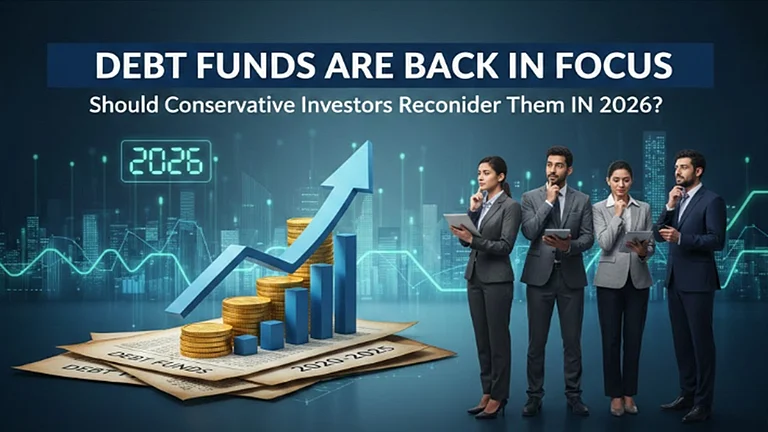The Kumars from Kandivali look, on paper, like the textbook image of financial success. Kumar, a 44-year-old banking professional, brings home Rs 50 lakh a year after tax. Their net worth adds up to a respectable Rs 3.5 crore, with assets ranging from real estate to mutual funds and equity-linked ESOPs. Their daughter goes to an IB school, they travel often, own property in Pune, and have mapped out big life goals, including a comfortable retirement.
And yet, the math doesn't add up.
Despite the income, the Kumars manage to save just Rs 5 lakh a year. A closer look reveals why: over Rs 45 lakh is spent annually on home loans, car loans, school fees, EMIs on an investment flat, and lifestyle expenses. Even though they have made investments, small-cap mutual funds, flexi-cap funds, fixed deposits, their portfolio is unevenly distributed and lacks liquidity and diversification.
Real estate dominates Rs 2 crore of their wealth, and nearly half of their equity exposure is tied up in a concentrated set of small-cap funds and ESOPs.
When a financial advisor evaluated their current resources against future goals, the picture turned sharper: the Kumars would need around Rs 5.6 crore today to fully secure their long-term aspirations. They only have 62 per cent. The gap is not about how much they earn but how structured their approach to saving, spending, and investing is.
And this story is not unique to the Kumars.
A new survey by Marcellus Investment Managers and Dun & Bradstreet covering 465 high-income households across 28 Indian cities uncovers a deeper pattern. Despite rising wealth and financial awareness, 43 per cent of HNIs are saving less than 20 per cent of their post-tax income. Even among those earning over Rs 10 crore annually, savings discipline is surprisingly weak, and asset allocation is misaligned with financial goals.
The report found that:
- Half of respondents in the 30–45 age group have open loans, similar to the Kumars.
- 14 per cent of HNIs don't maintain any emergency fund.
- Over 50 per cent have more than 20 per cent of their wealth in real estate, which is often illiquid and not income-generating.
- Only 17 per cent of the wealthiest investors allocate over 30 per cent to equities, even though equities are essential for long-term growth.
What is the issue?
A large part of the problem is the lack of personalised planning, the report states.
Many HNIs rely on advice from bank relationship managers or friends, and two out of three say they are dissatisfied with the guidance they receive. The biggest complaints: lack of personalisation, conflict of interest, and poor transparency. In fact, only 32 per cent take help from a professional wealth advisor or CA.
But there is growing awareness. Over 80 per cent of HNIs surveyed believe that professional financial planning could significantly improve their ability to meet long-term goals, and 38 per cent now seek goal-aligned asset allocation tailored to their risk profile. There is also increasing interest in diversification, 51 per cent said they need help expanding beyond traditional Indian assets.
For the Kumars, that turning point came when they laid out their financial goals in clear numbers, what they would need for retirement, for their daughter's education and wedding, and how inflation and growth assumptions would impact the outcome. That process made it evident that their wealth, while substantial, was not structured around their aspirations.
What they needed was less of a financial product and more of a plan. The Marcellus-D&B survey positions this moment as a pivotal one.
India's wealthy are no longer just chasing returns, they are seeking structure, transparency, and clarity. And for many, like the Kumars, it starts with acknowledging that income and assets are not the same as security.
The report highlights that being rich is not the ultimate goal, being ready is.

















